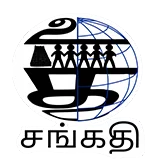
by PRIYAN DE SILVA
Coconut plantations in the Southern Province are still plagued by the Weligama Coconut Leaf Wilt Disease (WCLWD) although 14 years have elapsed since it was first detected. Over 340,000 coconut palms have been infected and more than 313,000 of them cut down and destroyed.
Dr Nayani Arachchige Deputy Director (Research) at the Coconut Research Institute (CRI) Lunuwila said that the CRI together with Coconut Cultivation Board (CCB) and other related stake holders including law enforcement authorities had managed to confine the disease to the Southern Province and if the coconut growers and the community on the whole were more cooperative the disease could be controlled sooner.
The Weligama coconut leaf wilt disease is caused by phytoplasma and transmitted by infective insect vectors, vegetative propagation or grafting of infected planting material to healthy plants, by vascular connections made between infected and uninfected host plants by parasitic plants and by seed/embryo transmission.Once infected, a coconut palm will die within two years. There is no known cure and cutting down infected trees and incinerating the crowns is the only practical solution to arrest the spread of the disease.
Dr Arachchige said that at the initial stage of infection a coconut tree would bear profusely and growers have second thoughts about cutting down the affected tree even after they have been noticed to do so by the authorities. The delay causes greater harm as more trees in the vicinity are prone to infection and was one reason that containing the disease has taken so long.
The WCLWD was first detected in the Weligama area in 2008 but had spread from Galle to Tangalle. To prevent the disease spreading further the CRI demarcated a buffer zonethree kilometres wide on either side of the A17 trunk road from Galle running through Angulugaha, Henegama, Akuressa, Kamburupitiya, Kirinda – Puhulwella, Hakmana, Walasmulla , Beliatta and ending in Tangalle.
The Government, by gazette notification No. 1542/7 of 24 March 2008, prohibited the transport of any palm species and their live parts out of the demarcated boundary. Even though theprohibition was not strictly adhered to due to various restraints luckily the disease did not spread to other coconut growing areas.
The Matara District where WCLWD was first detected has borne the brunt of the disease. Figures obtained from the Coconut Cultivation Board shows that up to 30th September 2022, 313,857 diseased trees have been identified in the district of which 295,343 have been cut down by the growers or injected with by CCB officials. Growers who complied with the order given by the CCB authorities and cut down the diseased trees were paid Rupees Three Thousand per tree more as an initiative to cut and destroy the tree rather than compensationas the cost incurred by a grower to tend to a plant until it starts bearing and the loss of produce is very much more.
Due to WCLWD and other factors such as Grizzled Giant Squirrels and Toque macaque, the annual yield in the Matara District had dropped from 121 million nuts in 2011 to 96,1 million nuts in 2019 and to 73 million nuts in 2020.
Some growers have been compelled to destroy their whole plantation and plant alternate crops as regulation No 1 of 2009 gazetted in accordance with subsection 2 of chapter 12 of the Plant protection Act No 35 of 1999, prohibits planting any type of Palm trees in the areas where WCLWD has been detected.
According to the CCB WCLWD could be fully eradicated in the near future if the growers and general public were more cooperative and if the government would continue to provide adequate funds.

